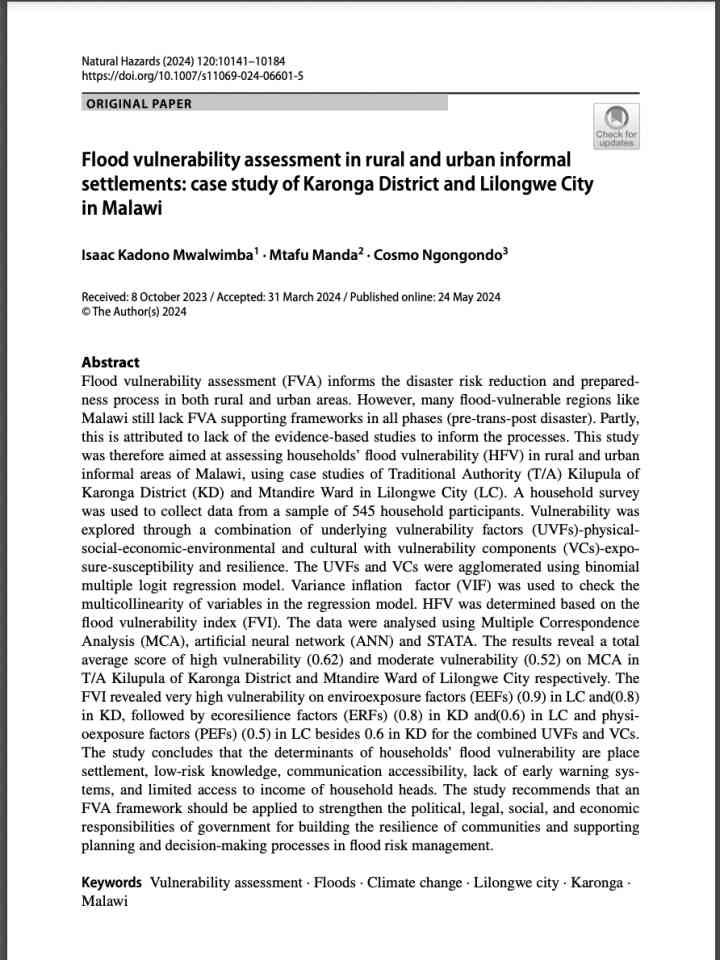Flood vulnerability assessment in rural and urban informal settlements: case study of Karonga District and Lilongwe City in Malawi
This study carried out flood vulnerability assessment (FVA) using quantitative methods by utilising MCA, ANN (machine learning) and multiple logistical regression. Flood vulnerability assessment (FVA) informs the disaster risk reduction and preparedness process in both rural and urban areas. However, many flood-vulnerable regions like Malawi still lack FVA supporting frameworks in all phases (pre-trans-post disaster).
The high flood vulnerability and lack of adaptive capacity among the households and communities in rural and urban informal settlements is an indication that catchment management in most areas remains a challenge to the water sector, disaster professionals and other players. This study highlights place settlement (proximity to catchments), low-risk knowledge, limited access to communication, poor sanitation, limited institutional capacity, and lack of alternative livelihoods as key drivers of flood vulnerability.
Explore further

